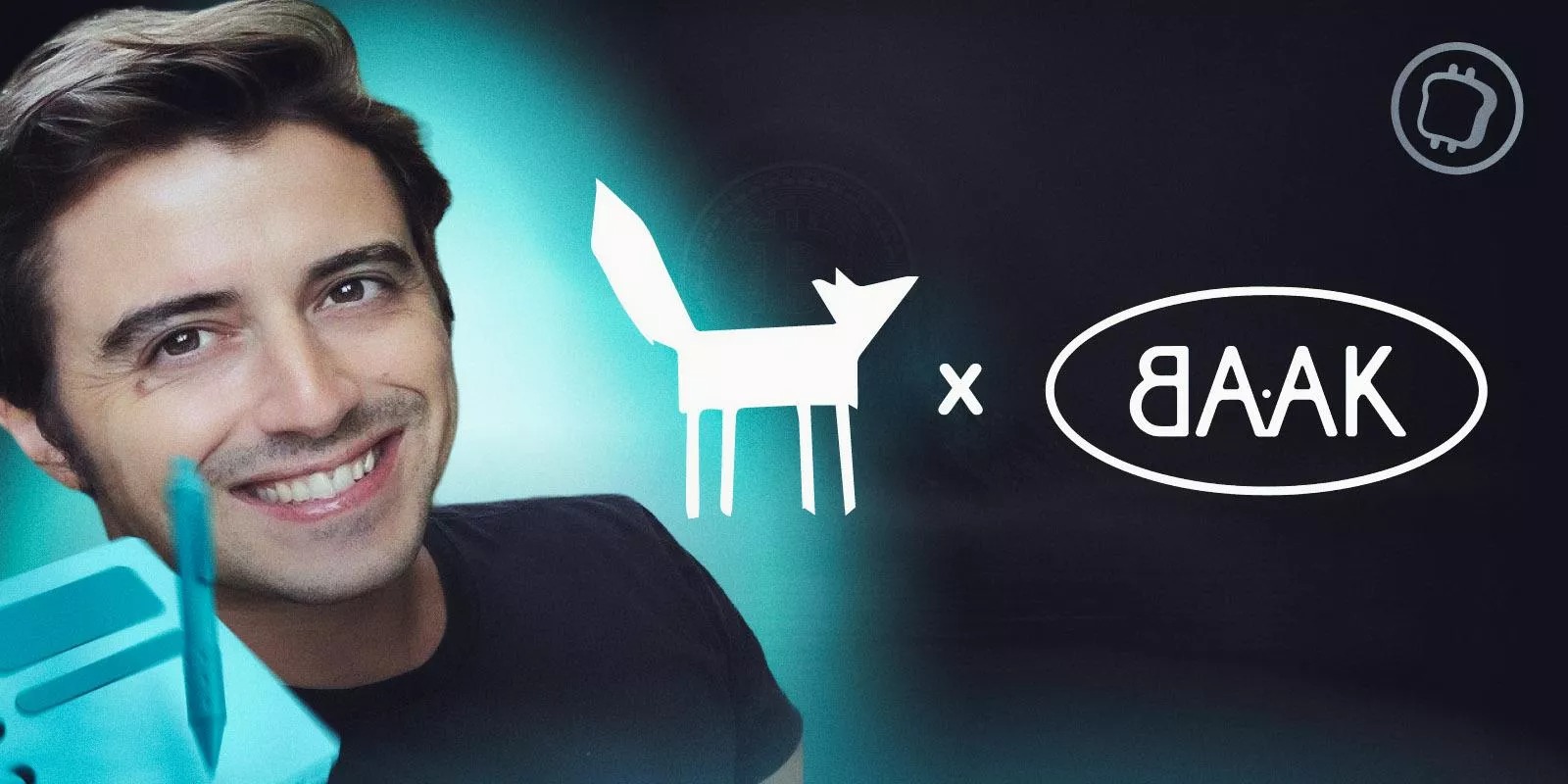As entrepreneur and crypto investor Julien Bouteloup announced his investment in BAAK, a car and motorcycle customization shop, we were able to speak with him to learn more. Beyond his investment, the interested party is also joining the company’s board of directors, in order to help it take the Web3 turn, while improving its ecological impact.
Julien Bouteloup invests in the BAAK workshop
Julien Bouteloup, the investor and entrepreneur behind decentralized finance projects (DeFi) such as StakeDAO and BlackPool, has announced that he is investing in the capital of BAAK, a French workshop specializing in the customization of motorcycles, cars and their accessories:
Important update. pic.twitter.com/gOjnU4YIXf
– Julien Bouteloup (@bneiluj) March 31, 2023
More than just an investment, Julien Bouteloup has also joined the company’s board of directors, in order to accompany the company in its Web3 transition. The interested party spoke to us about the details of this partnership, which aims to combine luxury, ecology and blockchain.
Indeed, the integration of blockchain technologies at BAAK must be seen in a global way: “owning a BAAK vehicle opens access to experiences”. Here, the vehicle is associated with a non-fungible token (NFT) that authenticates the history of each part:
The consumer knows the carbon footprint of his vehicle, he can for example know where the leather used to make the seat of his motorcycle comes from, where the animal was raised and slaughtered. He also knows what modifications or repairs have been made, the various changes of ownership, etc. “
By being able to “trace the carbon impact across the entire supply chain” reliably thanks to the blockchain, it then becomes easier to become aware of one’s own impact and guide one’s choices accordingly. Thus, the companies concerned are able to compensate for this impact, for example by buying carbon credits, which will be used to finance renewable projects.
Hydrogen as a sustainable development axis
During this interview, Julien Bouteloup explained that some of BAAK’s vehicles were converted to run on hydrogen. This is for example the case of the Land Rover Defender, which is originally a relatively polluting vehicle.
Thus, in addition to its added value brought by its accompaniment in the Web3 transition of the company, Stake Capital will also finance the research on hydrogen thanks to its investment.
“Finally, a car that runs on hydrogen remains an electric car, with the difference that it carries its source of energy production, while a classic electric vehicle must store this energy, which implies in particular the polluting extraction of certain metals like cobalt. “
Of course, hydrogen production also faces challenges:
With an electric car, beyond the problem of the battery, there is also the question of the production of electricity which is not necessarily green. The question also arises with hydrogen, but we remove one of the two problems, namely the storage of this energy. We then need to develop research into the production of hydrogen to make it more sustainable. “
More than just a vehicle: an experience
To illustrate his point, Julien Bouteloup compared vehicles to NFTs in GameFi, where each action would enrich it. Just as each piece of equipment has a value in a video game and is different from one character to another, so does each element of a vehicle, making it unique and “comparable to a work of art.
In this way, a motorcycle or car prepared by BAAK can be seen through all the elements that compose it, whose history and value of each of them are certified by the blockchain.
In addition, owners of a BAAK vehicle do not need to be familiar with blockchain technologies to enjoy the benefits that come with it:
” Thanks to account abstraction, vehicle owners don’t need a wallet, or to hold cryptocurrencies to pay gas fees. They simply need to have an account on the BAAK app and then users can access the experiences they are eligible for based on the vehicle they own. “
These events are illustrated for example through private parties or roadtrips :
Get ready for BAAK NFT-based memberships! If you own BAAK merchandise or a BAAK vehicle, you’ll get access to a suite of exclusive perks – from private club and rewards to access to exclusive events like trail, road trip, and camp. pic.twitter.com/3LoZjfmr8r
– Julien Bouteloup (@bneiluj) April 1, 2023
Eventually, a marketplace will be opened to the public to encourage retrofitting, a practice that consists of renovating the old to bring it up to date. This will allow users to have access to spare parts of different vehicles, whose history and origin will be certified by the blockchain :
“Here, people can really understand the interest of blockchain and Web3 with concrete use cases, where with decentralized finance, the concept of yield farming could be more abstract. “
Thus, owners of a BAAK-prepared vehicle will be transported into Web3, without needing any real knowledge of this ecosystem. This is one of the necessary conditions for the democratization of cryptocurrencies and the technologies surrounding them.
This initiative therefore tries to provide answers to everyday problems, both in terms of ecology, traceability, and sustainability, while working around different complementary axes.
